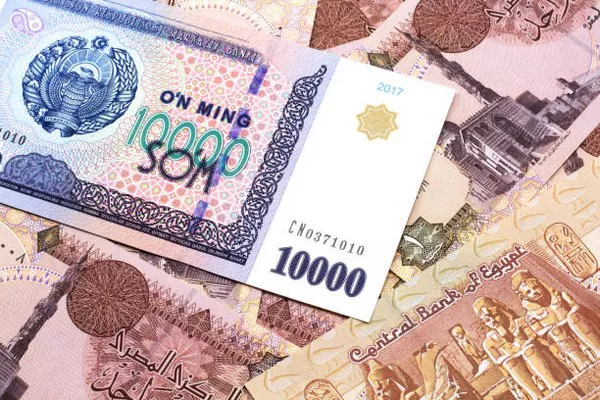The value of a currency is a critical indicator of economic health and international competitiveness. For the British Pound (GBP), fluctuations in value have far-reaching implications for trade, investment, and monetary policy. In recent years, amidst geopolitical shifts and economic uncertainties, questions have arisen about whether the GBP is undervalued relative to other major currencies. This article aims to explore this topic by examining key factors influencing the GBP’s value, recent trends, and expert opinions.
Factors Influencing GBP’s Value
Several factors influence the value of the British Pound in global currency markets:
Economic Performance: The performance of the UK economy relative to its peers plays a significant role. Economic indicators such as GDP growth, employment rates, inflation, and interest rates impact market sentiment towards the GBP.
Monetary Policy: Decisions by the Bank of England (BoE) regarding interest rates and quantitative easing affect the GBP’s value. Lower interest rates can decrease demand for the currency, while higher rates can strengthen it.
Political Stability: Political stability and government policies influence investor confidence. Uncertainty surrounding events like Brexit has historically impacted the GBP negatively.
Trade and Current Account: The UK’s trade balance and current account deficit or surplus affect the demand for GBP. A persistent deficit can lead to depreciation of the currency.
Global Events and Risk Sentiment: Geopolitical events, such as trade tensions or global crises, impact risk sentiment and can drive capital flows into or out of the GBP.
Recent Trends and Analysis
In the aftermath of the 2016 Brexit referendum, the British Pound experienced significant volatility. The prolonged uncertainty over the terms of Brexit negotiations and the subsequent economic adjustments contributed to GBP depreciation. By 2020, the GBP was trading at multi-year lows against major currencies like the US Dollar and Euro.
The COVID-19 pandemic further exacerbated GBP fluctuations. Initially, the Pound weakened against safe-haven currencies like the US Dollar amid global market turmoil. However, as vaccination rates improved and economic recovery took shape, the GBP regained strength.
In 2021, the Pound witnessed a period of relative stability and even appreciation against the backdrop of a resurgent UK economy and rising interest rates. However, concerns remain regarding the long-term impact of Brexit on trade and investment flows, which could continue to influence the GBP’s value.
Is the GBP Undervalued?
Assessing whether the GBP is undervalued requires a nuanced analysis of its fundamental and macroeconomic factors. Historically, currency valuation is often determined by purchasing power parity (PPP) and real effective exchange rates (REER). PPP compares the relative price levels of goods between countries, while REER adjusts nominal exchange rates for inflation differentials.
According to PPP theory, currencies tend to move towards equilibrium in the long run. If the actual exchange rate deviates significantly from the PPP-based exchange rate, it may suggest that the currency is misaligned. However, PPP has limitations, especially in the short term, as exchange rates are influenced by a myriad of factors beyond price levels.
The Economist’s Big Mac Index, which compares the prices of Big Macs across countries to assess exchange rate misalignments, suggests that the GBP was undervalued against the USD in 2021. However, this index provides only a rough estimate and does not capture all economic nuances.
On the other hand, the REER, which considers inflation differentials, provides a more comprehensive view. If the REER is significantly below its long-term average, it may indicate that the currency is undervalued. As of recent data, the REER of the GBP has shown mixed trends, influenced by inflation dynamics and monetary policy expectations.
Expert Opinions and Market Sentiment
Opinions among economists and analysts vary regarding the valuation of the GBP:
Bullish Outlook: Some analysts believe that the GBP is undervalued given the UK’s economic rebound post-Brexit and the BoE’s hawkish stance on interest rates. They argue that improved trade prospects and fiscal policy support could further bolster the Pound.
Cautious Optimism: Others adopt a more cautious stance, citing ongoing Brexit uncertainties, inflationary pressures, and global economic risks. They suggest that while the GBP has recovered, sustained appreciation may require continued policy stability and economic resilience.
Bearish Concerns: Certain analysts express concerns about the GBP’s vulnerability to external shocks, such as geopolitical tensions or adverse trade developments. They emphasize the need for prudent risk management in currency portfolios.
Conclusion
Assessing whether the GBP is undervalued is complex and subject to interpretation. While recent trends suggest a recovery in the Pound’s value, ongoing uncertainties pose challenges. The GBP’s future trajectory will depend on a range of factors, including economic performance, monetary policy decisions, geopolitical developments, and global risk sentiment.
Investors and policymakers should closely monitor key indicators such as inflation, interest rates, trade balances, and political stability to gauge the GBP’s true value. Ultimately, the currency’s valuation is a reflection of broader economic fundamentals and market dynamics, and a comprehensive analysis is essential to formulating informed perspectives on its true worth in global markets.


